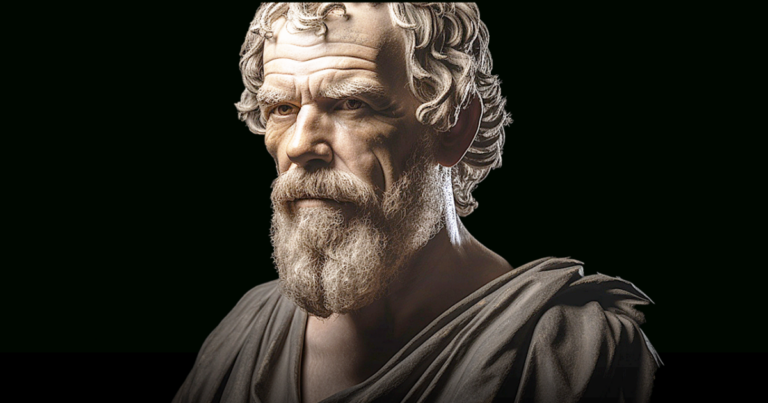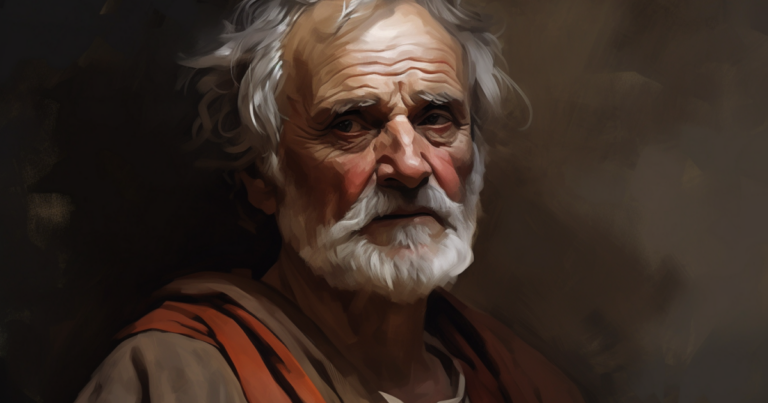The ancient philosophy of Stoicism has enjoyed a resurgence in recent years, with its focus on personal responsibility, self-discipline, and mental resilience proving particularly appealing to a modern audience. One of the most famous Stoics was the Roman emperor Marcus Aurelius, whose writings in “Meditations” offer a fascinating insight into the Stoic mindset and the philosophy’s enduring relevance.
Born in 121 AD, Marcus Aurelius became emperor of Rome in 161 AD and ruled until his death in 180 AD. During his reign, the Roman Empire faced numerous challenges, including invasions by Germanic tribes and a devastating epidemic that killed millions of people. Despite these difficulties, Marcus Aurelius maintained a stoic composure and a steadfast commitment to his principles.
One of the key insights from Marcus Aurelius’ philosophy is the importance of focusing on what we can control, rather than worrying about things that are outside of our influence. This is reflected in one of his most famous quotes: “You have power over your mind – not outside events. Realize this, and you will find strength.”
By accepting that there are some things that are beyond our control, we can free ourselves from the anxiety and frustration that often comes from trying to control the uncontrollable. Instead, we can focus our energy on what we can control – our thoughts, our actions, and our attitudes.
Another important aspect of the Stoic mindset is the recognition that we are all part of something larger than ourselves. As Marcus Aurelius wrote, “All things are connected like the blood that unites us all. This realization makes us more compassionate and more connected to the world around us.”
This sense of interconnectedness is reflected in the Stoic concept of cosmopolitanism, which holds that all human beings are citizens of the world and should strive to live in harmony with one another. By recognizing our shared humanity, we can cultivate a sense of empathy and compassion that can help us navigate the challenges of life with greater grace and understanding.
At the heart of the Stoic philosophy is the idea that we should strive to live a life of virtue and excellence, even in the face of adversity. This requires a commitment to self-discipline, self-awareness, and the constant pursuit of self-improvement.
As Marcus Aurelius wrote, “The first rule is to keep an untroubled spirit. The second is to look things in the face and know them for what they are.” By cultivating a sense of inner calm and clarity, we can approach even the most difficult situations with a sense of perspective and wisdom.
In addition to his philosophical insights, Marcus Aurelius’ life and leadership offer an inspiring example of Stoic principles in action. Despite the many challenges he faced as emperor, he remained committed to his principles of wisdom, justice, and self-control. He was known for his humility, his devotion to duty, and his commitment to the well-being of his people.
Another important aspect of the Stoic philosophy, as embodied by Marcus Aurelius, is the idea of detachment. This does not mean being apathetic or indifferent, but rather being able to detach ourselves from our emotions and desires in order to gain a broader perspective on life.
As Marcus Aurelius wrote, “Say to yourself in the early morning: I shall meet today ungrateful, violent, treacherous, envious, uncharitable men. All of these things have come upon them through ignorance of real good and ill… I can neither be harmed by any of them, for no man will involve me in wrong, nor can I be angry with my kinsman or hate him.”
By recognizing that our emotions and desires are often the source of our suffering, we can learn to detach ourselves from them and cultivate a more objective, rational approach to life. This can help us avoid getting swept up in the drama and chaos of daily life and instead focus on what is truly important.
Another important aspect of the Stoic philosophy, as exemplified by Marcus Aurelius, is the importance of self-examination and introspection. By regularly reflecting on our thoughts, actions, and beliefs, we can gain a greater understanding of ourselves and our place in the world.
As Marcus Aurelius wrote, “Do not waste what remains of your life in speculating about your neighbors, unless with a view to some mutual benefit. To wonder what so-and-so is doing and why, or what he is saying, or thinking, or scheming – in a word, anything that distracts you from fidelity to the ruler within you – means a loss of opportunity for some other task.”
By focusing on our own internal growth and development, we can cultivate a sense of purpose and meaning in our lives. This can help us overcome the sense of aimlessness and despair that often arises from focusing too much on external factors beyond our control.
Finally, the Stoic philosophy emphasizes the importance of living in the present moment and embracing the transience of life. As Marcus Aurelius wrote, “Do not waste your time on what you cannot control or influence. Focus on what you can control, namely your thoughts and actions. The present is the only time we have, and it is up to us to make the most of it.”
By recognizing the impermanence of all things, we can learn to appreciate the beauty and wonder of life as it unfolds before us. This can help us let go of regrets and anxieties about the past, and avoid getting too attached to our hopes and expectations for the future.
In conclusion, the Stoic philosophy as embodied by Marcus Aurelius offers valuable insights into how we can live a meaningful, fulfilling life in the face of uncertainty and adversity. By cultivating a sense of inner peace, detachment, self-examination, and presence, we can navigate the challenges of life with greater wisdom, compassion, and resilience. As Marcus Aurelius wrote, “Our life is what our thoughts make it.” By cultivating a Stoic mindset, we can make our lives more fulfilling, purposeful, and joyful, regardless of what external circumstances we may face.
Perhaps most importantly, Marcus Aurelius’ philosophy offers a timeless reminder of the power of resilience and the human capacity to overcome adversity. As he wrote, “The impediment to action advances action. What stands in the way becomes the way.” By embracing challenges and viewing them as opportunities for growth and learning, we can develop the mental resilience and strength of character that are at the heart of the Stoic philosophy.




